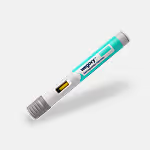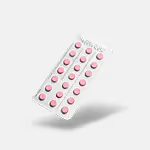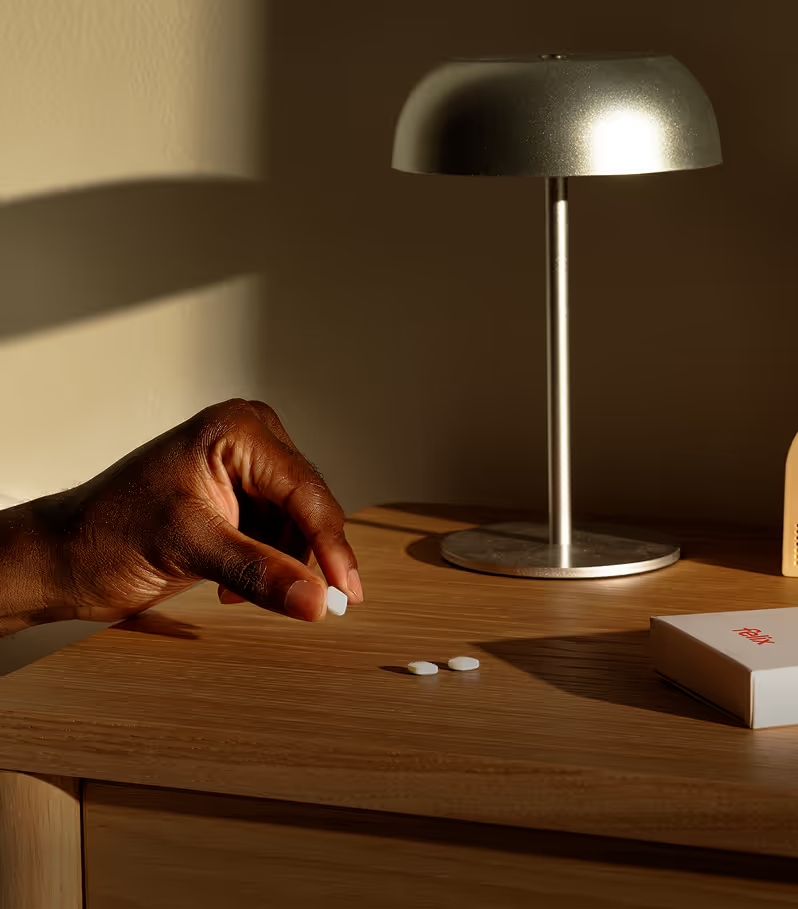Download the Felix App
Earn reward, visit our shop and get exclusive offers on the app
Download nowEarn reward, visit our shop and get exclusive offers on the app
Download nowPut your health first in 2026 with free visits on all categories, and $200 off longevity testing.
Download nowPut your health first in 2026 with free visits on all categories, and $200 off longevity testing.
Download now
AI-generated summaries may be inaccurate and do not constitute medical advice. Third-party AI tools are not under Felix's control, and your use of them is at your own risk.
Whether you’re concerned about gaining or losing weight while on the birth control pill, rest assured that you’re not alone.
Of course, everybody (and every body) is unique, and what works for one person isn’t always going to work for someone else. Maybe you've heard from your friends how birth control impacted their weight, but that alone shouldn’t be the deciding factor for you.
This is where your doctor comes in. Take some time to discuss with them what your options are for birth control and what some of the potential outcomes or side effects may be so that you can make a decision with their guidance for what’s best for you.
It’s actually pretty simple: the number one cause of weight gain while using hormonal birth control is water retention. A moderate-to-high level of estrogen can give the appearance of bloating or extra weight, so the more estrogen within the body, the more water you’re going to hold onto.
If you’re looking to start hormonal birth control and weight gain is a side effect that concerns you, speak to your doctor about options like low-dose estrogen or a non-hormonal methods. One thing to note is that some people naturally retain more water than others, birth control or not, so this can be exacerbated when starting on a hormonal contraceptive.
What’s considered low-dose? Typically any hormonal birth control that has less than 30 micrograms of estrogen. Low-dose isn’t always for everyone, though, so speaking to your doctor will help determine whether or not it’s suitable for you.
It's also true that progestin (one of the hormones in birth control pills) can stimulate the hunger hormone as well. This can have a direct effect on weight gain if you eat more due to your body’s reaction to the medication. Some birth control options that have higher estrogen levels can also increase insulin levels. When insulin levels are high, energy (calories) from carbohydrate sources turnover into fat cells. If you are somebody who is predisposed to having an abnormal glucose metabolism, this is something to flag to your healthcare practitioner as your chance of gaining weight while using birth control could be higher.
So, how much weight are we really talking about? To give you peace of mind, one study showed the average amount of weight gained within a 6-12 month period on a progestin-only birth control is about 4.4 lbs.
Hormonal birth control, such as oral contraceptives, hormonal IUDs (not copper), the patch, the implant, the shot, or the ring have the potential to cause weight gain because of the estrogen component we explained above. Non-hormonal birth controls, however, won’t typically affect someone’s weight.
The one hormonal contraceptive that has been found to cause weight gain by way of increasing body fat mass is the Depo Provera shot. At this time, it’s not necessarily known whether or not the shot increases appetite, but it is known to have a glucocorticoid side effect.
Glucocorticoids cause weight gain by stimulating appetite and changing metabolism of sugars, fats, and proteins. They change how the body stores fat, causing more fat in the abdomen and face.
One study shows that the average weight gain from the birth control shot is around 11.25 pounds, or a 3.4% increase in body fat percentage.
The implant is another hormonal contraceptive that may cause weight gain as it releases a synthetic hormone called etonogestrel into your bloodstream. The additional component of etonogestrel can interfere with your natural hormonal balance, sometimes leading to weight gain.
Weight gain as a side effect of hormonal birth control has been studied for years and the majority of studies have been unable to attribute weight gain conclusively to birth control.
One study from 2016 showed that there was no actual weight gain found in a focus group wherein all subjects believed they had actually gained weight. Another study showed that there was very little evidence to prove that POCs (progestin-only contraceptives) caused weight gain — on average, throughout a 6-12 month period, weight gain was less than 4.4 lbs for most test groups. For other birth control methods, they found that the amount of weight gain was about the same.
Because any initial weight gain upon commencing birth control is most often due to water retention, it isn’t considered true fat gain. Any weight gained after stopping birth control can no longer be attributed to birth control. If your eating habits and level of movement has stayed consistent, you may want to consider speaking with your doctor to see if weight gain could be a result of a different potential health concern.
Unintentional weight loss has not been linked to contraception. If you notice that you’ve begun to lose weight while on hormonal birth control, this is likely due to a different reason. Take stock of your movement routines, the kinds of food you’re consuming, how you are feeling (energy levels, mood, etc.), and if unintentional weight loss persists (especially at a drastic rate), you should consult with a doctor.
Subtle weight fluctuations are normal and are typically nothing to worry about, especially when you’re not dealing with extreme losses or gains. Fluctuations can happen due to a multitude of factors and so there’s no reason to get down on yourself about being up one day or down another.
When it comes to birth control, everybody is going to react differently. The truth is that it might take trying a few different types of birth control in order to find the one that fits you and your lifestyle, or you may find that it’s not actually for you at all and that’s okay! There are still plenty of other options to choose from when it comes to preventing pregnancy.
For starters, if weight fluctuation is a major concern of yours, speak to your doctor about what your options are for a low-dose estrogen birth control to help with bloating.
Focus on eating a well-balanced diet of nutrient-dense foods. Try to move away from processed and packaged foods and more towards whole foods, but don’t forget to treat yourself every now and then! Balance and moderation are always key.
Pro tip: plan and prep your meals ahead of time. This will almost always lessen the likelihood of reaching for that bag of chips when you can’t decide what to eat or what to cook for yourself.
If you’re not into going to the gym or taking a fitness class, getting into a routine of practicing daily movement will be greatly beneficial for you in the long run. Not only will hitting a step target every day help keep you physically in shape, but it helps keep your mind healthy, too.
Make a conscious effort to add more movement into your life whenever possible. This might look like walking to do errands instead of driving, taking the stairs instead of the elevator, setting an alarm every hour to get up from your desk, or even going for a walk while taking a work call.
Getting adequate rest often tends to be overlooked despite it having a lot more to do with our physical and mental wellbeing than we think. The average adult needs anywhere from seven to nine hours of sleep per night. If you’re sleep deprived and getting less than seven hours consistently, you may notice an increase in appetite, altered hunger cues, general lethargy — and you may find yourself reaching for more carbs and calorie-dense foods throughout the day.
If you have trouble falling asleep at night, try creating a bedtime routine to allow yourself to wind down. Tuck away the electronics, set up a relaxing environment, read a book, or put on calming sounds to soothe your mind as you drift off.
Studies have shown that an increased water intake can boost your metabolism, lower hunger levels, help you perform better when exercising, and help the body to keep your digestion and bowel movements regular.
Have trouble getting in two to three litres a day? Use a container where you know how much water it can hold, like a litre-sized water bottle! That way, it’s easier to track how many times you’ve had to fill the bottle up throughout the day. We’re all about setting ourselves up for success with small changes.
People who experience high levels of stress typically have affected eating behaviours. They can experience binging, emotional eating, overconsumption of high-fat, high-salt, and high-sugar foods.
By making a concerted effort to lower your stress levels, you’re going to do your mind and body a big favour. If you’re looking for ways to calm your mind, try going for a walk, talking to a friend or family member, taking up a new hobby, exercising — anything that allows you to focus your attention elsewhere, that’s calming and that you genuinely enjoy. Less stress is on the horizon!
We know that the thought of weight gain or weight loss alike can be daunting, but if the studies tell you anything, it should be that weight fluctuation is normal and shouldn’t be as scary as you may think. Take the time to work through what your options may be with your healthcare practitioner to see what could be the right fit for you; you can always trial and error until you find what works, and you’ll be glad you did once you feel confident and comfortable with your decision!
Medically reviewed by
References




























